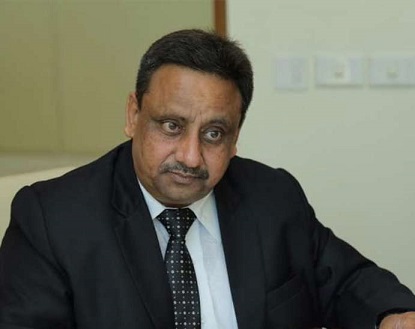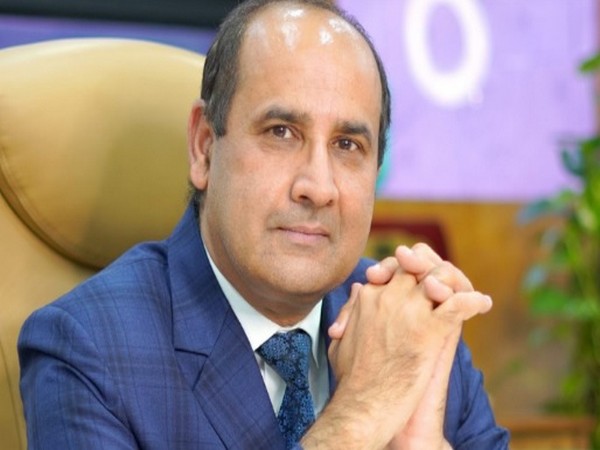Government should provide financial assistance to traders: CAIT Secretary-General Praveen Khandelwal

NEW DELHI: As the COVID-19 cases continue to spiral across the country, leading to lockdowns and night curfews in many parts of the nation. The worst-hit among the businesses are the small traders and daily wage earners.
In an exclusive conversation with PageOne Asia's Parul Manchanda, CAIT Secretary- General Praveen Khandelwal shares his thoughts on the impact of lockdown on the trading community. Here are the edited excerpts of the interview:
Q: Due to the COVID-19 lockdown, retail traders across the country have suffered huge business losses. Share your views on this.
A: The retail trade in India generates an annual turnover of about Rs. 80 lakh crore which is a major contribution to the nation's GDP. However, any closure of the market by any reason certainly affects the trade and commercial activities. Retail traders across the country have suffered a business loss of Rs. 3.5 lakh crore, while wholesale traders have faced losses worth Rs. 1.5 lakh crore.
During the period of 1st April to 25th April, a business loss of about Rs. 5 lakh crore has been reported as per the feedback received by our research arm, the CAIT Research & Trade Development Society, from 14 states those who are witnessing a high increase of COVID-19 cases.
The Indian retail trade has two arms i.e. wholesale trade supplying goods from one trader to another which is called B2B and retail trade which is between retailers and consumers i.e B2C. The separate figures of both the format of trade show a steep decline because of a sudden surge in the number of COVID-19 cases.
Q: Are you looking for a bailout package from the government for the traders?
A: The government had announced several packages but there was not a single package for traders. Even when the shops or businesses are closed, the outflow is there. They have to pay salaries, rents and other expenses but there is no inflow and if this continues businesses across India will collapse.
The government should provide financial assistance to traders. They can ask banks to provide easy loans at a low rate of interest. Still, now, traders are at a huge loss and have not recovered from the last year's COVID-19 lockdown and now again they are in the same position.
Q: What should be the road ahead for the revival of the Indian economy?
A: The pandemic has sceptically affected businesses across sectors and it is vital to plan the revival of the economy and put the business community back on its track. This is the time of economic uncertainty and we have to shape decisive strategies & policies to reboot, reload and relaunch the economy.
The government should form a policy in which loans at a low rate of interest should be made available to the business community. The government should also comply with the Income-tax and GST return for the next three months because if this does not happen, traders will be burdened with huge penalties and a high rate of interest. Traders are an important part of the community and contribute 45% of the GDP.
CAIT has time and again said that we are standing in solidarity with the Indian government and we will always be there to help you. At this point, traders are making sure that every essential commodity should reach the citizens and traders are going out of their way to help citizens, following all COVID-19 protocols.
Q: You have asked Delhi LG Anil Baijal and CM Arvind Kejriwal to extend the lockdown in Delhi till May 15. Will this not result in more losses for to the traders?
A: The current lockdown in Delhi has been imposed to break the chain of transmission of COVID-19 and it will end on May 3 but given the current scenario, the situation has not improved. Opening the shops in such a condition would lead to traders and their employees getting infected. Traders in the national capital will suffer if another lockdown is imposed, but there is no better choice than to break the chain of transmission. We have also asked the Delhi government to crackdown on the black marketing of medicines, medical equipment and other essential items which are in short supply.
Q: Due to the lockdown restrictions, CAIT had urged the Finance Ministry to postpone 11 types of GST compliances in April itself. Did you get any reply from the Ministry?
A: When the markets are closed, how can traders be expected to comply with the statutory dates of compliance under GST and Income Tax? It is a national calamity and therefore all statutory compliance must be postponed for the next three months to withdraw late fees, penalties, and other rigorous measures on the traders. But we haven't received any reply from Finance Minister Nirmala Sitharaman till now.
Q: CAIT has time and again insisted that FDI policy in the e-commerce sector should be enforced in letter and spirit. Please throw some light on this.
A: It is an admitted fact that internal trade or domestic trade in India is the only sector of the economy that neither has a separate Ministry nor a trade policy. E-commerce has emerged as a promising mode of business during the last 5 years and there is a change in consumer behaviour that is tilting towards a purchase from the online system.
The e-commerce business is growing faster and in absence of any e-commerce policy, the foreign-funded MNCs are indulging in all kind of mal-practices including deep discounting, predatory pricing, control of inventory, sale of certain products exclusively on their respective portals which is a violation of Press Note 2 of the FDI Policy of 2018 of the government.
To make e-commerce business, a field of even level playing, we are demanding a robust e-commerce policy having a provision of formation of a regulatory authority armed with adequate powers to ensure that every one player where MNC or domestic must follow the stipulations made in the e-commerce policy both in letter and spirit.
Q: What are your expectations from the new e-commerce policy? Do you think it can put curbs on alleged malpractices of large e-commerce players in India?
A: Yes, if rules and regulations are strictly enforced and violation of the policy must attract an exemplary punishment and trial of cases against bonafide complaints of violation in a fast track court will curb the mal-practices to a larger extent.
Q: Do you think collaboration should take place between e-commerce giants and small traders? Will they create business and employment opportunities for the Indian economy?
A: Not at all, their business policies are driven by their sinister agenda of controlling and dominating the trade and commerce activities in India. Therefore any collaboration with them is out of mind. Rather than giving employment, they will force the people to leave their existing employment.
Q: Do you think e-commerce is bringing a revolution in the retail sector? Both traditional and modern retail should co-exist?
A: Yes, it will certainly bring a revolution and will change the retail trade landscape of India to a larger extent. If rules and regulations are properly and mandatorily followed by the players, both offline and online trade will co-exist in India successfully.
Q: What are the expectations from the 2021 w.r.t. shift in consumer buying behaviour?
A: As I told earlier, there is certainly a change in the shopping behaviour of the customer. We must remember that in India the people between the age group from 18 to 40 years are the real consumers and they now prefer to shop online and pay the bill using digital payments. This hard fact must have to be understood by the offline trade and they have to upgrade, modernise and computerize their existing format of trade to remain in business for a long time.
Q: CAIT has demanded explicit clarity in Press Note No.2 of the FDI policy. Did the ministry modify the provisions to curb mal-practices of foreign-funded e-commerce companies?
A: To the best of our knowledge, the government following its intent is working hard to issue a fresh Press Note by removing all kinds of disparities, anomalies and escape routes for foreign-funded e-commerce players.











